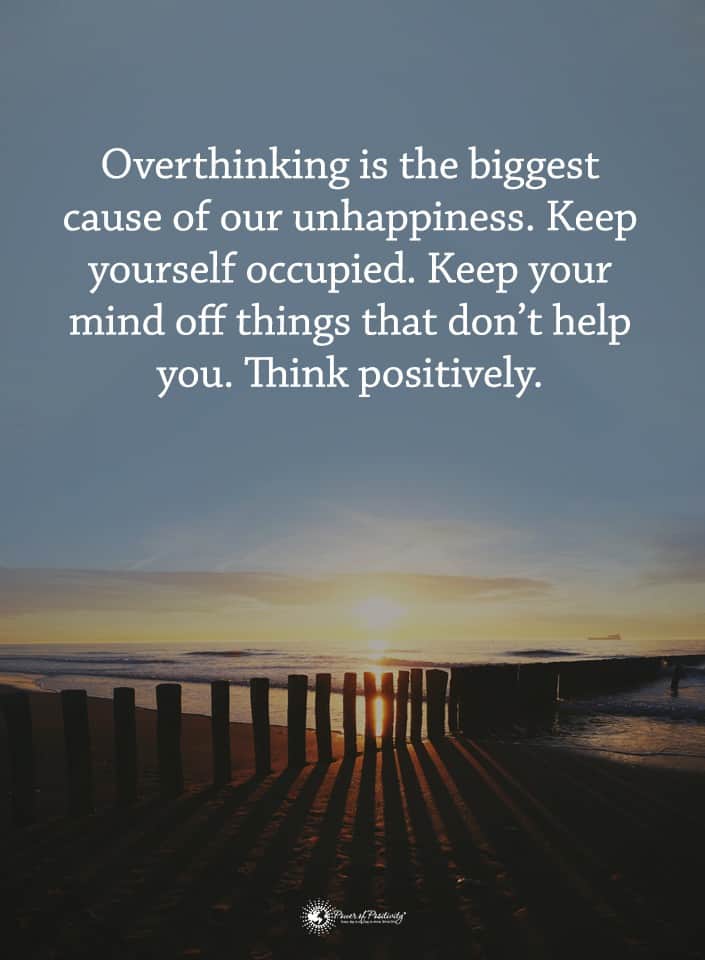Your brain shapes every aspect of your life—from decision-making to memory, emotional well-being, and problem-solving.
But maintaining cognitive health requires more than just occasional effort; it’s a lifestyle choice. Without healthy habits, our brains are vulnerable to decline over time.
Here, we explore 15 of the healthiest brain habits backed by science to help you stay sharp, resilient, and mentally agile for years to come.
Let’s dive into the habits that can keep your mind at its best.
The Science Behind Cognitive Health
Cognitive health refers to the brain’s ability to learn, remember, and adapt over time. Key biological processes like neuroplasticity and brain-derived neurotrophic factor (BDNF), which ensure the brain remains robust and functional, support this.
Habits like mental stimulation, exercise, and proper sleep directly influence these processes, enhancing long-term brain health.
- Neuroplasticity: The brain’s capacity to rewire and adapt through learning and experiences.
- BDNF: A protein that promotes neuron growth, vital for memory and learning; boosted by physical activity and a healthy diet.
- Daily Habits Impact: Regular exercise increases blood flow, mental challenges improve neural connections, and sleep aids memory consolidation.
- Stress Management: Mindfulness and social connections reduce cortisol levels, protecting brain function over time.
The 15 Healthiest Brain Habits
Eat a Brain-Healthy Diet
A brain-supporting diet, such as the Mediterranean or MIND diet, emphasizes leafy greens, berries, whole grains, nuts, and fish.
These foods help reduce inflammation, protect neurons, and combat oxidative stress, promoting neuroplasticity and delaying cognitive decline.
Research shows that adopting these dietary patterns lowers the risk of Alzheimer’s and supports lifelong brain health.
Exercise Regularly
Physical activity increases blood flow to the brain, supporting memory and cognitive function. Aerobic exercises, such as walking or swimming, boost neurogenesis and reduce stress by releasing mood-enhancing endorphins.
Regular exercise also strengthens brain plasticity, helping to delay cognitive decline and reduce the risk of Alzheimer’s disease.
Get Quality Sleep
Adequate sleep is essential for memory consolidation and brain detoxification. A good night’s rest helps flush out toxins from the brain, reducing the risk of neurodegenerative diseases like Alzheimer’s.
Adults should aim for 7-8 hours of sleep per night, as consistent, high-quality sleep improves focus, emotional regulation, and cognitive function over time.
Engage in Lifelong Learning
Lifelong learning keeps the brain active and resilient by reinforcing neural pathways and improving cognitive flexibility.
It enhances problem-solving skills and memory while promoting a sense of fulfillment and emotional well-being.
- Learning new skills strengthens memory-related neural connections.
- Continuous education builds a buffer against cognitive decline.
- Engaging in diverse learning activities sharpens problem-solving abilities.
- Learning fosters a sense of purpose and reduces anxiety by promoting personal growth and social engagement.
Practice Mindfulness and Meditation
Mindfulness and meditation enhance brain health by reducing stress, improving attention, and fostering emotional regulation.
Regular practice has been shown to increase gray matter density in regions related to memory and emotion, such as the hippocampus, while reducing stress-related activity in the amygdala.
These changes enhance focus, promote emotional stability, and may slow age-related cognitive decline.
Stay Socially Connected
Maintaining social connections supports cognitive function and emotional well-being. Social interaction stimulates brain networks, builds cognitive resilience, and helps delay memory decline.
It also reduces stress, anxiety, and the risk of depression, fostering a positive mindset. Engaging with family, friends, or community activities strengthens mental health and creates a sense of purpose.
Manage Chronic Conditions
Effectively managing chronic conditions such as hypertension, diabetes, and heart disease is crucial for maintaining brain health.
These conditions, when left uncontrolled, increase the risk of cognitive decline and dementia.
- Lowering blood pressure decreases the risk of mild cognitive impairment.
- Proper diabetes management reduces nerve damage and cognitive issues.
- Regular exercise helps manage chronic conditions while enhancing mood and brain function.
- Regular check-ups and medication management ensure early detection and better control of chronic health risks.
Limit Alcohol and Avoid Smoking

Both alcohol and smoking have harmful effects on brain health. Heavy alcohol use reduces brain volume and impairs cognitive function, increasing the risk of dementia and stroke.
Smoking contributes to oxidative stress, damaging brain cells and accelerating cognitive decline. Avoiding these substances protects brain structure, enhances cognitive longevity, and reduces the risk of neurodegenerative diseases
Engage in Brain Games and Mental Exercises
Brain games and mental exercises improve cognitive abilities by enhancing memory, problem-solving skills, and mental agility.
Activities such as crossword puzzles, Sudoku, and chess encourage neuroplasticity—the brain’s ability to adapt and reorganize connections. Regular engagement in these activities has been linked to a slower rate of cognitive decline and better focus and recall as we age.
Combining physical activities, like tai chi, with mental games further boosts cognitive health by increasing blood flow to key brain areas.
Reduce Stress Levels
Chronic stress negatively impacts brain health by increasing cortisol levels, which impair memory and emotional regulation. Reducing stress through mindfulness, meditation, exercise, and time spent in nature lowers cortisol and promotes cognitive resilience.
Practices like these enhance mental well-being and help prevent stress-related cognitive decline, ensuring better focus and emotional balance.
Take Power Naps
Power naps, typically lasting 10 to 30 minutes, offer significant cognitive benefits. These short naps boost alertness, improve memory, and reduce fatigue without interfering with nighttime sleep.
Research shows they enhance mood and performance by preventing sleep inertia—grogginess that can occur from deeper sleep stages.
For the best results, experts recommend napping in the early afternoon to recharge the brain and maintain productivity throughout the day.
Consume Omega-3 Fatty Acids
Omega-3 fatty acids, primarily found in fish like salmon, mackerel, and sardines, are crucial for brain health.
These fats support cognitive function, enhance memory, and promote neuroplasticity by maintaining the integrity of brain cell membranes and reducing inflammation.
- Omega-3s improve focus, memory, and learning ability.
- They help protect the brain from age-related cognitive decline and neurodegenerative diseases.
- Omega-3s support emotional well-being by reducing symptoms of depression and anxiety.
- Plant-based sources like chia seeds and flaxseeds are available, along with algae-based supplements for those avoiding fish.
Protect Your Head
Wearing helmets during activities like biking, skiing, and contact sports significantly reduces the risk of traumatic brain injuries (TBI).
Helmets can decrease the likelihood of head injuries by 45-88%, ensuring better brain protection and minimizing long-term cognitive damage.
Proper helmet fit is essential for optimal safety, and replacing helmets after significant impact is recommended. Additionally, using seat belts and following fall prevention strategies at home further safeguard against head injuries.
Practice Gratitude and Positivity

Practicing gratitude improves brain function by enhancing the prefrontal cortex, the area responsible for decision-making and emotional regulation.
Gratitude releases dopamine and serotonin, boosting mood and fostering positive thinking. It also reduces stress levels, anxiety, and depression by shifting focus to the present moment.
Regularly practicing gratitude strengthens neural pathways, helping to create a positive mindset that promotes resilience and emotional well-being over time.
Moderate Technology Use
Excessive technology use can impair cognitive function by reducing attention span and memory retention.
Moderating screen time helps prevent overstimulation and promotes better focus, emotional regulation, and mental well-being.
- Limits multitasking, which is linked to diminished attention and memory.
- Reduces stress and anxiety caused by constant notifications and multitasking.
- Minimizing screen time before bed promotes better rest and cognitive recovery.
Lifestyle and Environmental Considerations
Maintaining a healthy lifestyle and environment plays a key role in preserving brain health.
Environmental pollutants—such as air, water contamination, and exposure to harmful chemicals—can pass through the blood-brain barrier, causing inflammation and increasing the risk of cognitive decline and neurological diseases
- Importance of a Healthy Environment: A toxin-free environment promotes optimal brain function by reducing inflammation and supporting cognitive health.
- Avoiding Harmful Substances: Limiting smoking and alcohol intake protects brain cells and lowers the risk of cognitive decline and neurological disorders.
FAQs
1. When is the best time to start practicing healthy brain habits?
It’s never too early or too late to adopt brain-healthy habits. Cognitive health is a lifelong process, and small changes made in childhood, adulthood, or even later years can help reduce the risk of cognitive decline. Engaging in regular physical activity, managing chronic conditions early, and maintaining social connections are crucial throughout all life stages to preserve mental agility.
2. How does cognitive reserve help protect the brain from decline?
Cognitive reserve refers to the brain’s ability to efficiently compensate for damage or age-related changes. People with higher cognitive reserves—often developed through education, mental challenges, and social activities—tend to show fewer symptoms of cognitive decline, even if they have neurological changes like Alzheimer’s plaques.
3. Can certain habits reverse early cognitive decline?
While some age-related cognitive decline is natural, adopting specific habits can slow or even slightly reverse the process. Regular exercise, especially aerobic activities, improves hippocampal volume and supports memory. A Mediterranean diet combined with mindfulness practices has been shown to reduce cognitive decline in early stages.
Sharp Endings, Bright Beginnings
Your brain is your most valuable asset—nurturing it with healthy habits will pay dividends for years to come.
Whether it’s through mindful moments, power naps, or brain-boosting meals, every small step counts toward a sharper, happier mind.
So, dive into lifelong learning, stay active, and keep those neurons firing!
With the right lifestyle choices, you’re not just adding years to your life—you’re adding life to your years. Your brain will thank you!


























